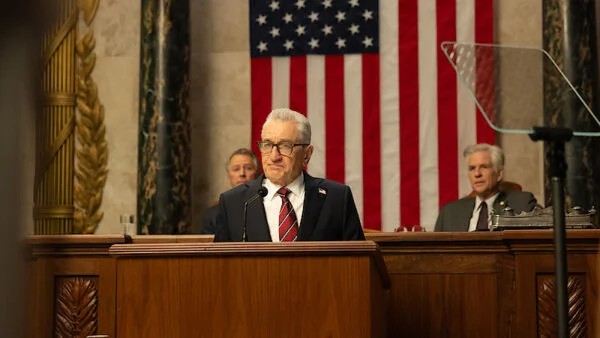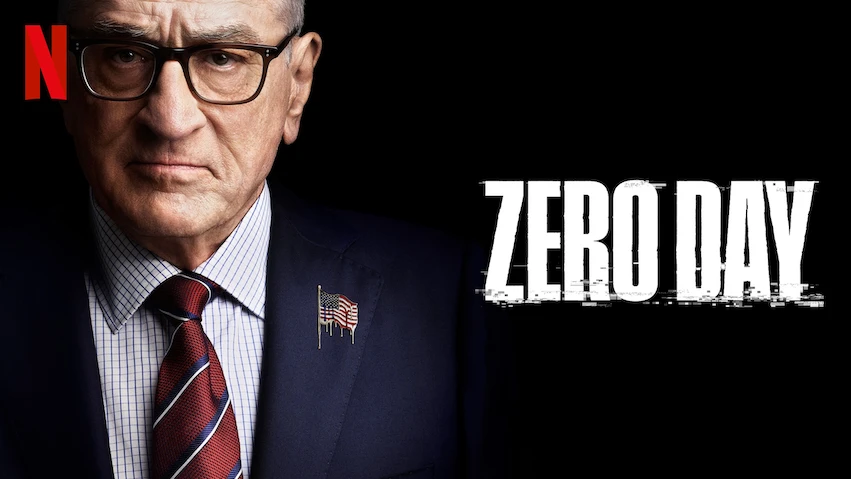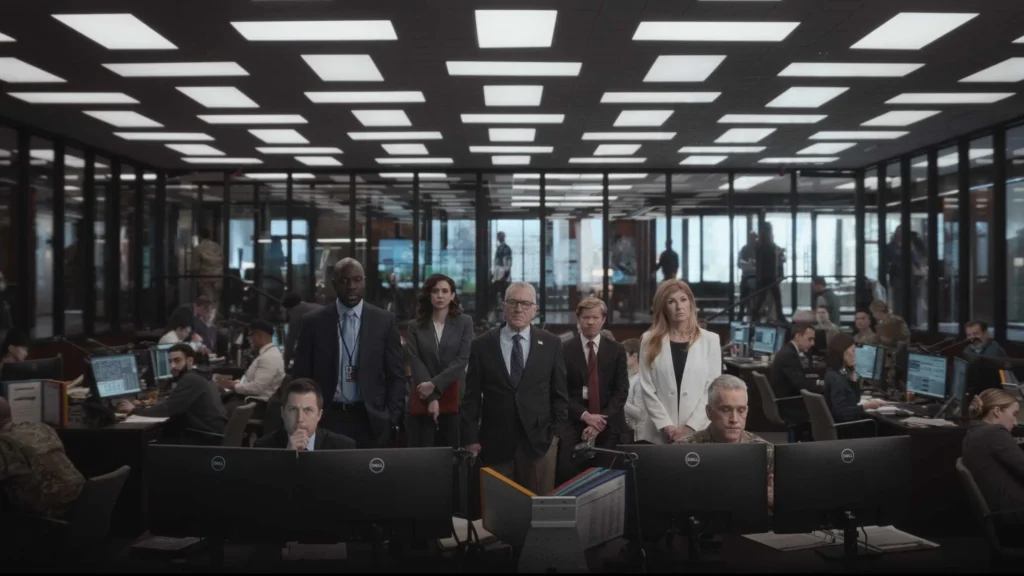When digital chaos meets political ambition, things tend to get messy, fast! Cyberattacks, political chess games, and secrets could blow up an entire nation. Zero Day does not tiptoe around drama. It launches headfirst into a digital catastrophe that feels a little too real, forcing you all to ask, what happens really when the biggest threats to a nation come from within?
The show hooks you with its high-stakes tension and never lets go. But the real shocker comes in the final moments, where truth and loyalty collide in spectacular fashion. The Zero Day ending isn’t just a twist but a full-blown ethical reckoning.
In case you’re still processing what really did happen and are picking your jaw off the floor or just curious about how the whole thing wraps up, we’re here to break it all down for you. Let’s unravel the Zero Day ending and explore what it really means.
⚠️Spoiler Alert: This article contains major spoilers for Netflix’s political thriller Zero Day. Proceed only if you’ve watched the finale.
Plot Recap: When The Internet Broke and So Did The Nation

Before heading towards the ending of Zero Day, let’s take a quick recap. Imagine waking up to a country in digital freefall, power grids glitching, systems failing, and the internet basically waving a white flag. That’s how Zero Day kicks off. A massive cyberattack devastates the United States, and everyone wants to know who did this and why.
Enter former President George Mullen, played with presidential gravitas by Robert De Niro, who’s called out of retirement to lead the investigation. What he uncovers is more chilling than any Russian hacker or rogue AI; it’s definitely an inside job. A conspiracy that snakes through the corridors of American power and into his own family.
Let’s break down the heavy, twisty finale. Here’s your full Zero Day ending explained, with all the juicy details.
The Big Confession: Daughter Dearest Drops The Bomb
The final episode begins with the kind of reveal that would give even the most seasoned binge-watcher a whiplash! Alexandra Mullen, played by Lizzy Caplan, George’s estranged daughter, confesses her role in the Zero Day plot. Yep, that’s right. His own kid helped to launch a cyber apocalypse.
But hang on, she didn’t do it out of any evil instincts. Alexandra believed that the country needed a “system shock” to reunite a fractured society. Her confession that she left for her father paints her as a reluctant conspirator with noble-ish goals. She swears she never meant to hurt anyone and begs the others to come clean.
Her reasoning may be realistic, but let’s face it, cyber warfare isn’t exactly a gentle nudge toward unity.
Also, read Cobra Kai Ending Explained: Who Won, Who Died, and What It All Means
The Choice: Sweep It Under The Rug or Blow It All Up?

George Mullen now faces the ultimate presidential moral dilemma – protect the system or tell the truth?
The pressure is intense. Powerful figures in Congress, with Speaker Richard Dreyer leading the charge, push Mullen to bury the truth. Their proposed fix is to blame it all on Monica Kidder, the late tech billionaire who’s no longer around to deny it. Classic scapegoat maneuver.
And just when you think Dreyer can’t get any slimier, he casually drops a veiled threat about Alexandra’s safety. Nothing screams bad guy energy like mixing family pressure with political blackmail.
Hallucinations or Higher Calling?
Throughout the series, George is haunted by hallucinations of his late son. It’s never fully clear whether these visions are a result of grief, stress, or exposure to a creepy neurological weapon named Proteus. But in the finale, it’s a hallucination that snaps him out of his moral paralysis.
Inspired by or may be pushed by his ghostly visitor, Mullen abandons the script during his final address to the nation.
Boom: The Truth Goes Public
In a moment of jaw-dropping TV drama, George reads Alexandra’s confession out loud in front of Congress and the American people. With the burden of a mind stripped of everything but his truth, Mullen steps forward and names the conspirators – Dreyer, Alexandra, and the others. It’s the kind of scene that makes you want to stand up and clap, even as your jaw’s on the floor.
Alexandra, true to her word, begins taking steps to turn herself in. There are no arrests shown, no riots—just a nation processing the truth in eerie and reflective silence.
The Aftermath: Truth Hurts… But Maybe It Heals?

So, what does the Zero Day ending really mean?
George Mullen retires quietly, having sacrificed his legacy, his family, and possibly the nation’s stability to tell the truth. The final montage suggests the American people, who are all shell-shocked but still dignified, have the courage to handle it all.
But the show leaves us hanging in the best way. The country remains divided. Alexandra’s fate is uncertain. And George’s mental clarity? That is still a question mark. Was Proteus messing with his mind? Or was it just old-fashioned guilt and grief?
That ambiguity adds layers to the ending of Zero Day, nudging viewers to ask themselves what they would do if they were ever in George’s shoes.
Also, read Adolescence Ending Explained: A Haunting Look at Loss and Responsibility
Final Thoughts on Zero Day Ending
The Zero Day ending does not just land, it actually comes down crashing through the ceiling, dropping truth bombs and so many emotions. It is smart, definitely messy, and exactly the kind of chaos you would want from a good political thriller.
Maybe you applauded Mullen’s guts. Maybe you’re still yelling at your screen about Alexandra. Either way, it hits hard.
FAQs
1. Was Alexandra really trying to help the country?
Yes, in her own twisted way. She believed that a shock to the system could bring unity—but underestimated the chaos it would cause.
2. Why didn’t George Mullen take the easy way out?
Because deep down, he couldn’t live with a lie—especially one that would protect the powerful and endanger his daughter.
3. Was Mullen hallucinating because of Proteus?
It’s unclear. The show leaves this ambiguous, blending political tension with psychological drama. Interpret it your way.